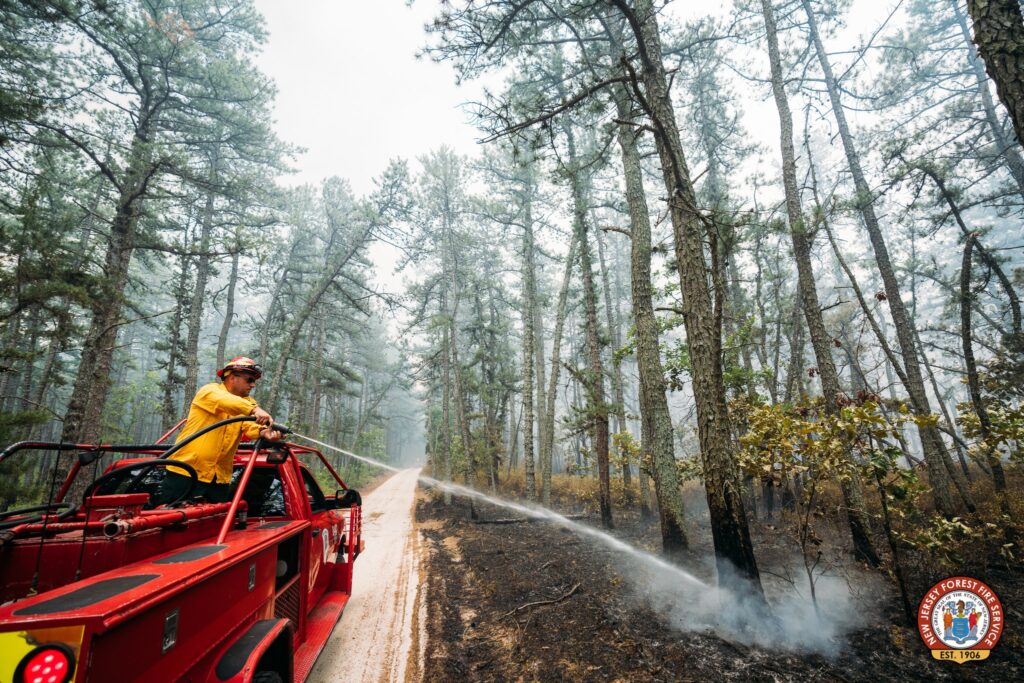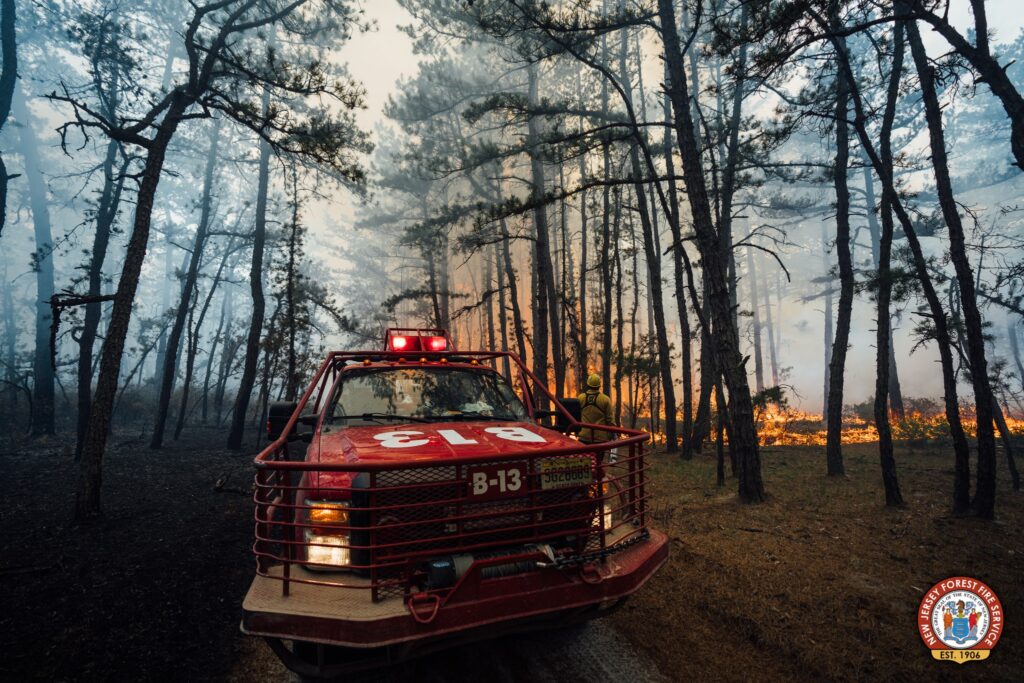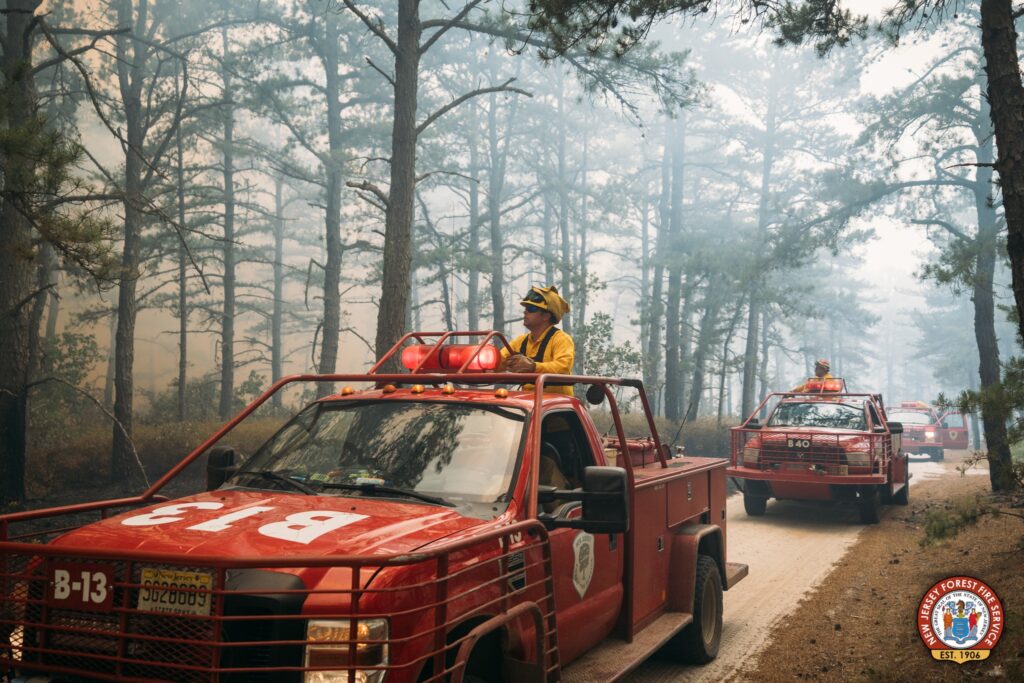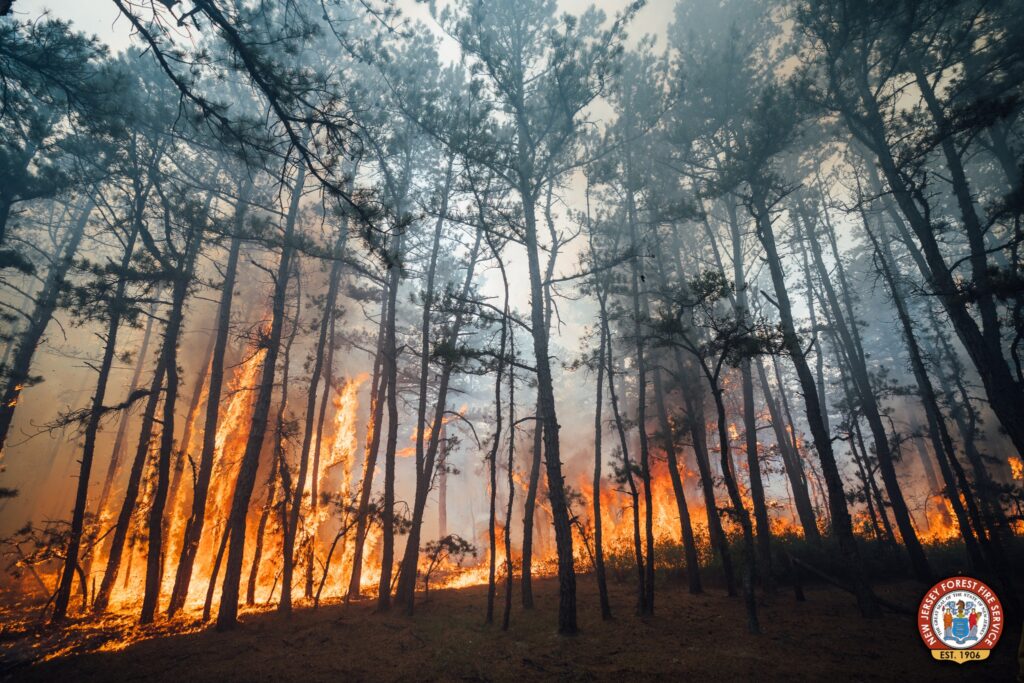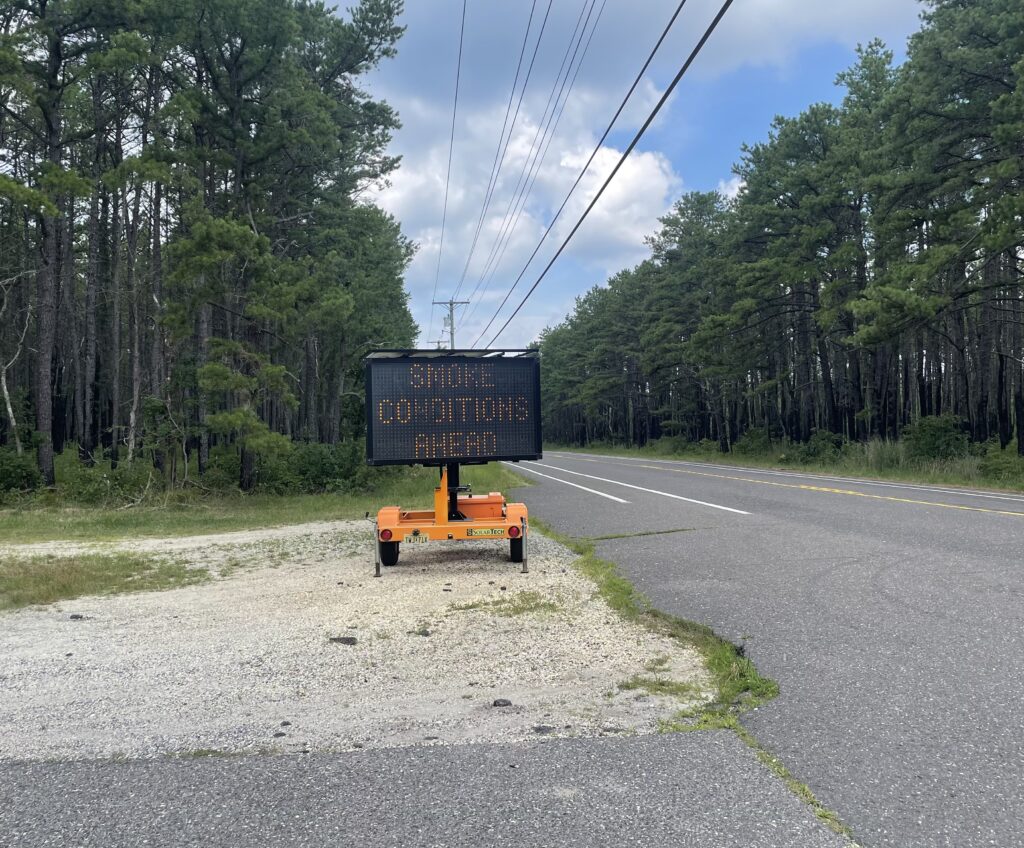
A sign warns of smoke conditions following the July 5 Tea Time Hill wildfire in Wharton State Forest, the largest so far this year. It was caused by a fireworks device lighted inside the area the day before.
The statistics about wildfires show that 99% of them are caused by humans, whether intentionally or accidentally, according to Assistant State Fire Warden Shawn Judy.
The Tea Time Hill wildfire – reported just after 9 a.m. on July 5 at Wharton State Forest in Tabernacle – was no different. It was the largest wildfire so far this year and was caused by a fireworks device lighted inside the forest late on July 4 near the Batona Campground and Apple Pie Hill.
“A local cranberry grower had alerted (fire officials) after observing smoke conditions,” Judy explained.
As of last week, the state Department of Environmental Protection (NJDEP) Forest Fire Service had reached 90% containment of a 4,300-acre wildfire. As of July 11, seven forest fire service staffers remained on scene to continue monitoring control lines and address areas of concern.
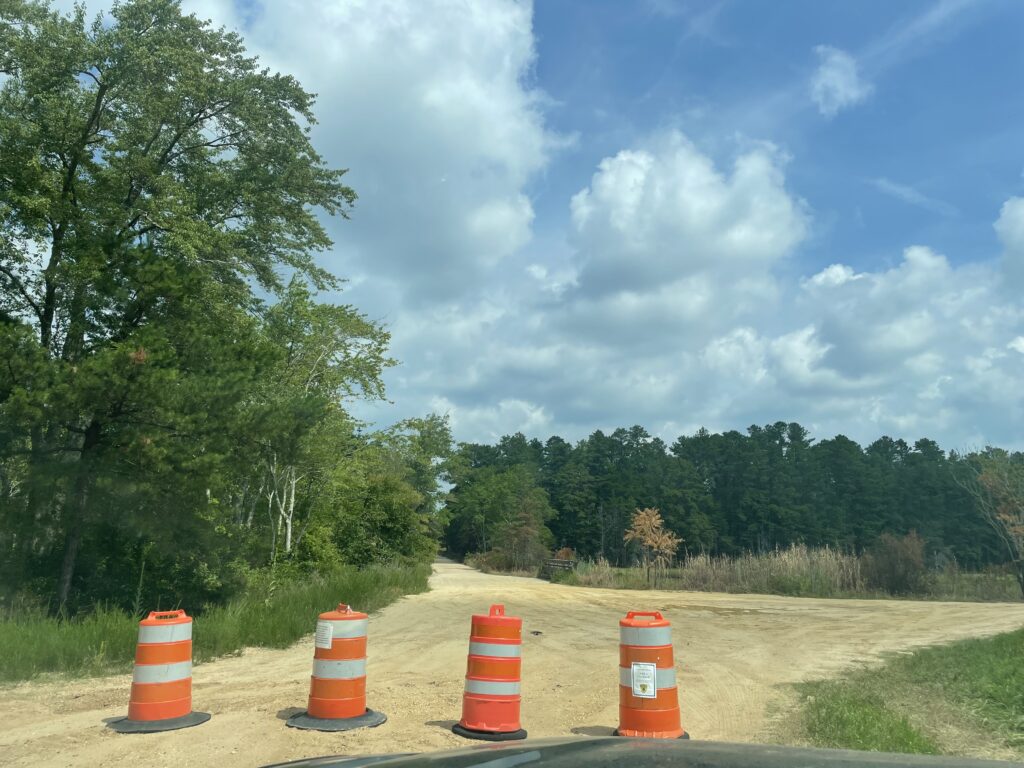
Cones block off an area following the wildfire. As of July 11, seven forest fire service staffers remained on scene to continue monitoring control lines and address areas of concern.
“We’re hoping for rain,” Judy said, noting that dry conditions, sandy soils of the area and soaring temperatures have been challenging factors, since the ground quickly dries any moisture.
The public has been advised that smoke may be visible for an extended period while firefighters work to mop up the wildfire and that motorists in the area should remain cautious. Judy also thanked the residents of Tabernacle and Chatsworth for their support.
Early on, two structures were threatened by the wildfire – one residential and one a hunting club. No injuries were reported.
The fire service led the Tea Time Hill investigation, in collaboration with the New Jersey State Park Police, the state Division of Fire Safety and the Burlington County Fire Marshal’s Office. Those agencies have an excellent relationship and are working in cohesion to identify the parties responsible, according to Judy.
Anyone with information about the fire that could aid the investigation is urged to call the state park police tip line at 844-PARK-TIP (844-727-5847).
Visitors to New Jersey’s state parks, forests and recreation areas are advised that fireworks are strictly prohibited, including – but not limited to – beaches, campgrounds, fields and forested areas. If you observe illegal or suspicious activity while visiting state parks, forests or historic sites, report the activity to DEP Dispatch at 1-877-WARNDEP (1-877-927-6337) or dial 911.
Wildfire season
As climate change leads to longer wildfire seasons, the NJDEP fire service is providing more tools and resources than ever to help the public understand and mitigate risk and get access to timely safety information on ongoing wildfires. Peak season typically runs from mid-March through mid-May.
Prolonged dry weather known as a flash drought has added on average 10 days to the wildfire season, Judy observed. Prevention remains the most important part of the equation. Most wildfires can be avoided by adhering to these commonsense safety tips:
- Don’t discard cigarettes, matches or smoking materials on the ground.
- Don’t leave fires unattended. Douse them completely, until cold to the touch.
- Keep matches and lighters away from children. Teach youth about fire safety. Children can learn about wildfire safety with Smokey Bear’s new mobile game, “Smokey’s Scouts,” at https://smokeybear.com/en/smokey-for-kids/smokeys-scouts
- Protect your home and other structures from wildfire by creating defensible space.
- Ensure fire trucks can access driveways.
- Report suspicious vehicles and individuals to authorities.
- Use wood stoves and fireplaces carefully, since both can emit embers that spark fires. Fully douse ashes with water before disposal.
- Contact your nearest Forest Fire Service office at https://www.nj.gov/dep/parksandforests/fire/about/contact.html about how to obtain a campfire permit.
To learn more about wildfires in New Jersey, steps to protect property and other resources, visit www.njwildfire.org.
